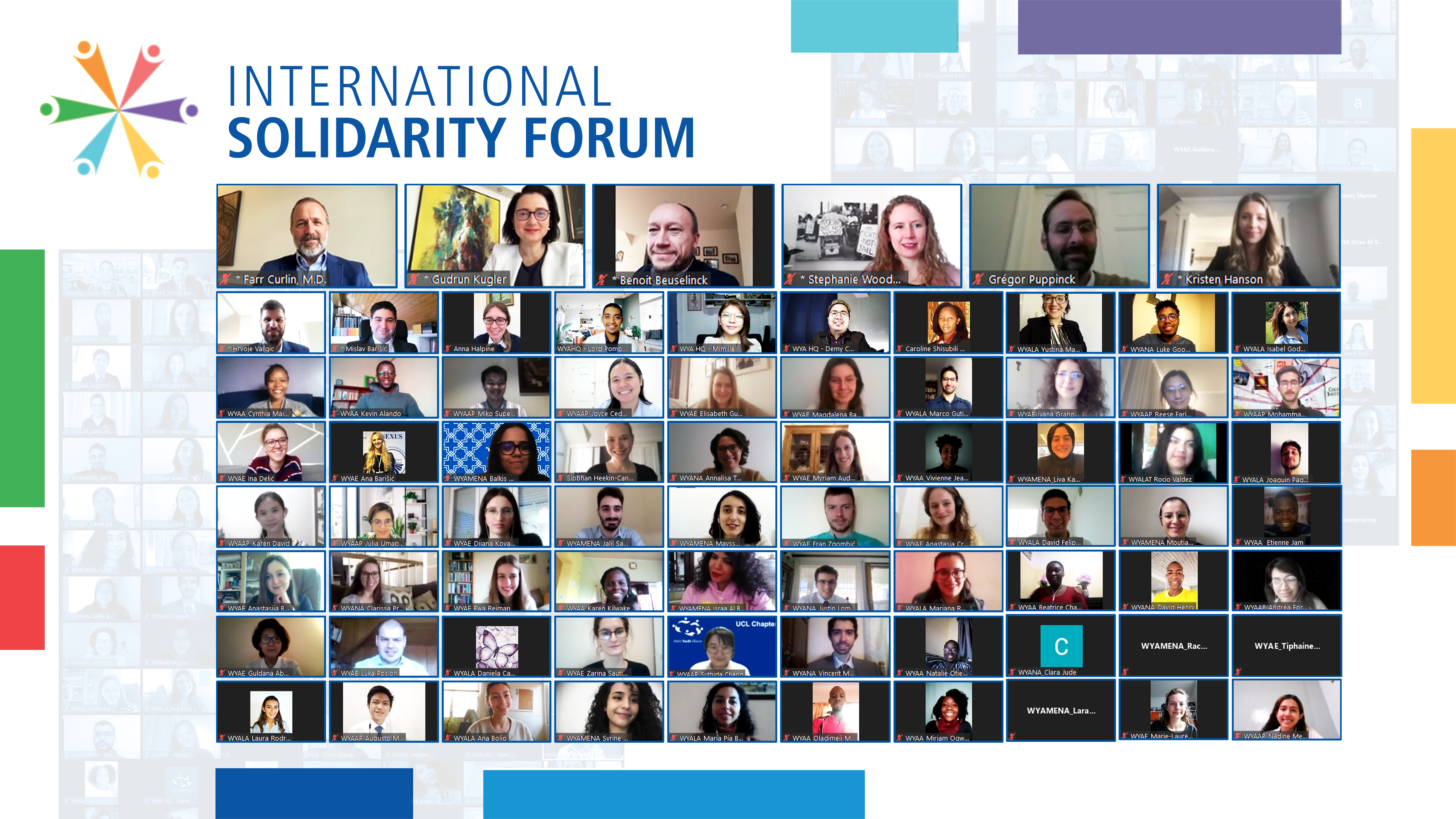I served as Head Delegate for World Youth Alliance’s North America regional branch at WYA’s 2021 International Solidarity Forum (ISF) on the theme of Assisted Suicide & Euthanasia. This year’s ISF, one held virtually during March, offered my fellow North American delegates and me an excellent opportunity to contribute to the advancement of human dignity and human rights by participating in the formation of this Declaration.

In preparation for the Plenary Negotiations—which involved the delegations for WYA’s Africa, Asia Pacific, Europe, Latin America, Middle East & North Africa, and North America branches—the North American delegation met for two Regional Negotiation sessions. These sessions provided us a great opportunity to develop the negotiation skills pertinent to producing a human rights document that would be shared with the wider world. During these negotiations, the WYA North America delegates each made suggestions and voted on the inclusion, exclusion, or modification of certain segments of the draft and whether to include or modify certain contributions that other branches’ delegates made. This process called to mind some of the knowledge that I gained this past year during my studies at the Catholic University of America to earn a M.A. in Human Rights.
During one of my classes at Catholic University taught by two former U.N. diplomats, one for the United States and the other for the Holy See, I learned that the drafting process of a treaty at the U.N. encompasses certain rules for the negotiation of a treaty’s language, or text. Delegates must reach consensus, or broad agreement indicated by the absence of objections being voiced by any of the delegates, regarding the treaty’s text. Without unanimous agreement upon the exact language of a certain section of a treaty, such language cannot be included in the final version of the treaty which will be formally entered into by the various member states.
In a similar fashion, at the two Plenary Negotiations of the 2021 ISF Summit, the head delegates for each WYA region sought to vote according to the language that their regional delegations had settled on at their respective regional negotiation sessions. We did not have to attain unanimous consensus at the ISF, but we did have to reach a majority consensus on the content of the declaration. Since each of the delegations had made different edits and suggestions to the language of the draft Declaration on Assisted Suicide & Euthanasia, compromise became essential. As one of the head delegates voting line-by-line on the content of the draft declaration, I at times had to put off pushing for the exact language that the North America delegation recommended for incorporation into the final document. This was necessary to both avoid deadlock and allow for the inclusion of new ideas, which contributed to the overall quality of the document that were introduced by my fellow WYA members hailing from an incredibly diverse thirty-eight countries.
I am hopeful that the above-described process contributed to the formation of a compelling document, one capable of inspiring—as described in the published language of our declaration, which was agreed upon by the majority of the representatives of WYA’s six regional branches—“the members of the medical profession, jurists, political decision makers, ethicists and all stakeholders at the local, national, regional and international levels as well as society in general to stand up for human dignity at all stages of life.”
[su_divider top=”no”]
Published: May 26, 2021
Written by Justin Lombardi, WYA North America intern alumnus and USA National Committee member







